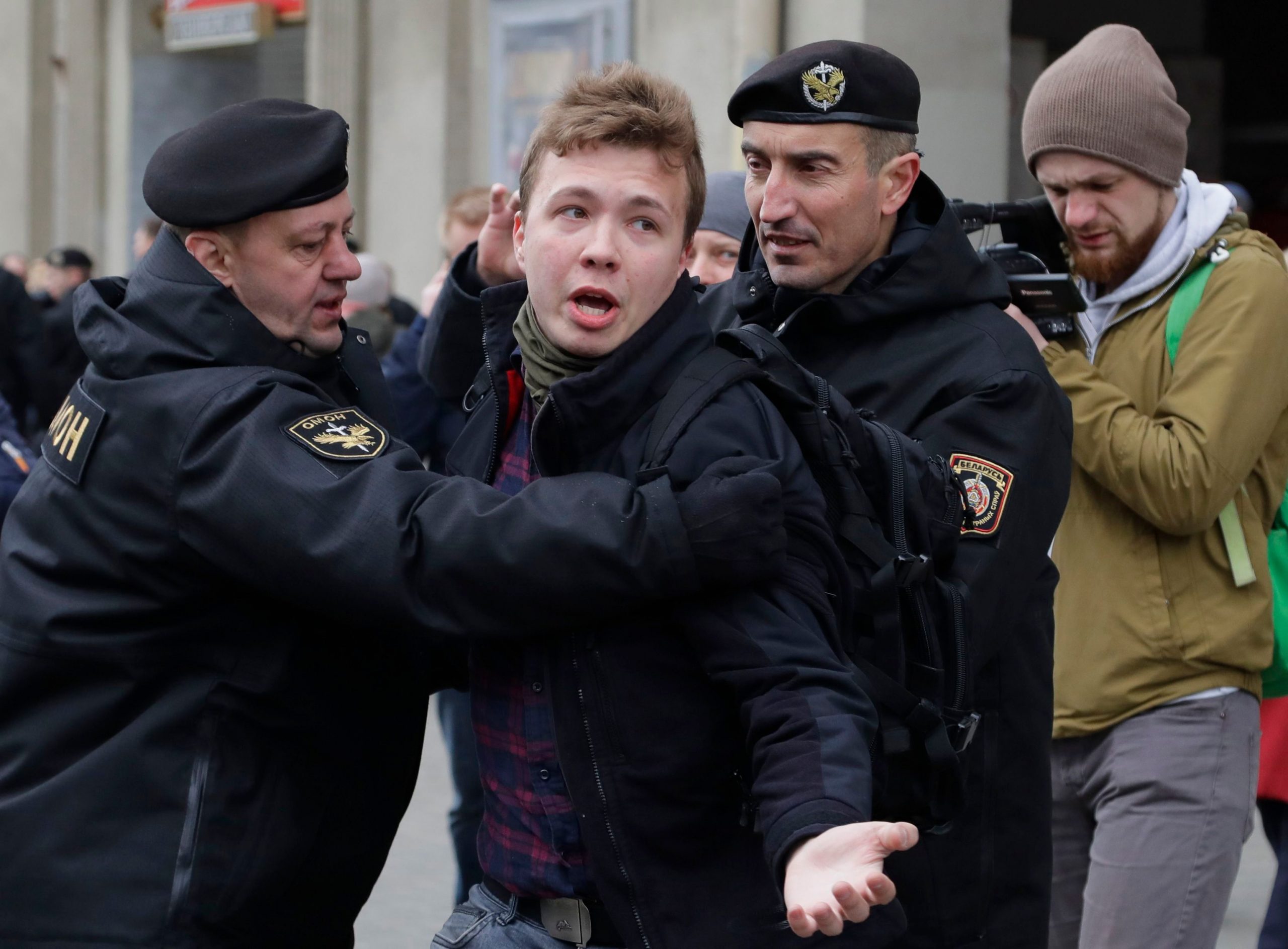
A flight from Athens, Greece to Vilnius, Lithuania made an emergency landing in Minsk, the capital of Belarus, on 23 May. One of the around 120 passengers on board was 26-year-old Roman Protasevich, a Belarusian journalist who founded the opposition media outlet Nexta, hosted on the Telegram messaging app. Protasevich and his girlfriend were arrested when the Ryanair jet landed. He faces charges of sedition, which can carry the death penalty in Belarus.
There are indications that the emergency landing was orchestrated by the regime of President Alexander Lukashenko in order to arrest Protasevich. A bomb threat was called in when the plane was about to leave Belarusian airspace. Instead of landing in nearby Lithuania, however, Belarusian authorities scrambled a MiG-29 fighter jet to “escort” the flight to Minsk, where Protasevich was arrested on arrival. According to Belarusian state media, the MiG was flying on direct orders from Lukashenko.
The plane arrived in Vilnius a few hours after the unscheduled landing with most of the remaining passengers on board.
Who is Roman Protasevich?
Dissident journalist Protasevich is wanted by the Lukashenko regime for his role in creating Nexta, a media channel with over one million subscribers which fuses democratic activism with information about the activities of the regime suppressed by official media. It is run by volunteers exiled to countries including Poland and Lithuania, where Protasevich had been living. Because Nexta is hosted on an encrypted messaging app, it cannot be censored.
In 2020, the outlet helped coordinate massive anti-government protests in the wake of a presidential election that official results showed Lukashenko winning with 80 per cent of the vote. Lukashenko has even blamed protests against his regime on “the Internet and Telegram channels [which] go so deep into people’s brains”.
What could be the wider consequences for civilian aviation?
The diversion of the plane raises a number of difficult questions for the EU and world aviation. Although all governments maintain sovereign control over their airspace, civilian planes can only fly internationally – including through airspace controlled by repressive regimes – because states and airlines trust each other to behave responsibly. The government of Belarus reportedly calling in a bomb scare and scrambling a fighter jet to “escort” the plane to Minsk Airport undermines the trust the international aviation system relies upon.
Mistakes by state-sponsored actors have happened before – such as the downing of MH17 by Russian-backed separatists over eastern Ukraine in 2014 – but rarely as a matter of deliberate state policy.
How will the EU respond?
The EU response to the move, which was denounced by some leaders as a “hijacking” and “state terrorism”, will undoubtedly be a significant theme of European politics in the week ahead, including at the 24-25 May European Council meeting.
Countries may now declare Belarusian airspace unsafe for their planes, which would make some flights longer and more expensive. Some politicians such as the President of Lithuania, Gitanas Nausėda, have already called for such a move, which would also deprive the Belarusian treasury of the “airspace fees” it charges planes. The EU might also decide to ban the Belarusian flag carrier, Belavia, from EU airspace.
The consequences of getting the response wrong could be significant. With some exceptions, most airspace around the world is open to civilian planes from most countries. By definition, international air travel depends on planes being able to transit over states with which the country to which they are registered may not have good relations.
Donald Tusk, the president of the European People’s Party, a centre-right alliance of European political parties, termed Lukashenko’s move “state terrorism”. It is difficult to disagree with that assessment, considering that a civilian EU plane flying between EU capitals, carrying around 120 civilians, was taken hostage. The other passengers are now free, but Protasevich will likely not be for some time more.
[See also: Why the clock is ticking for Belarus’s Lukashenko]






